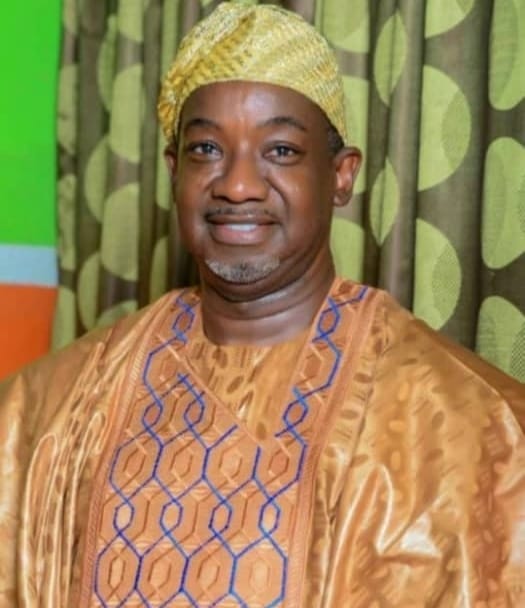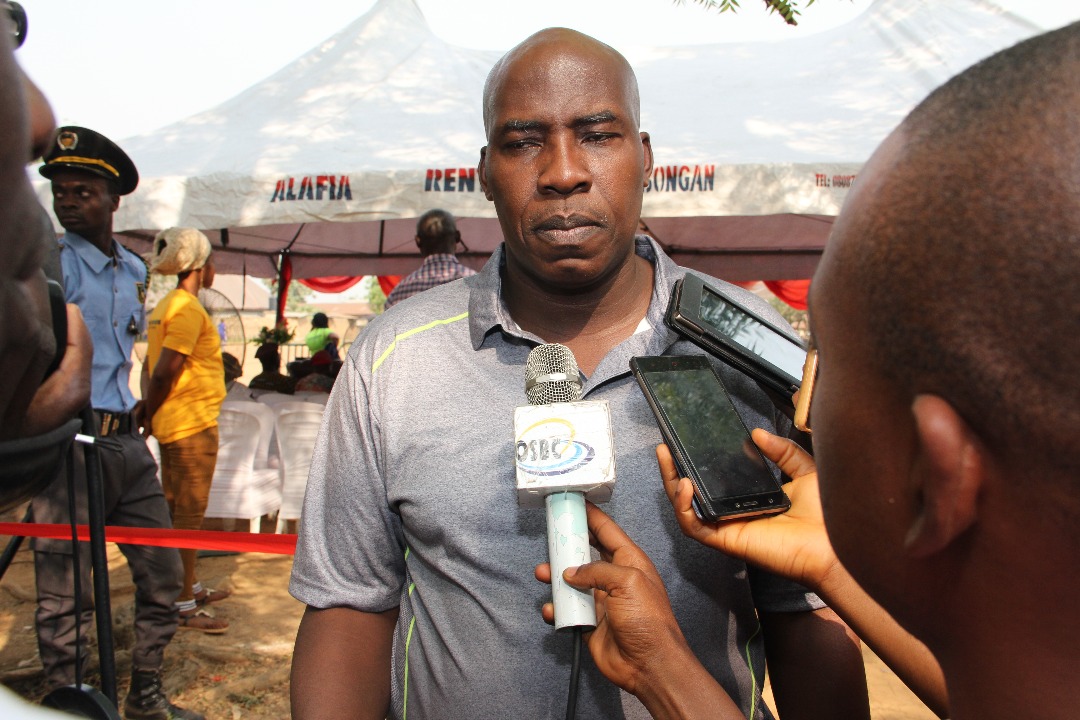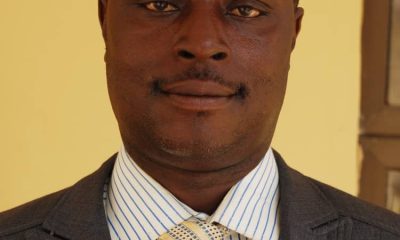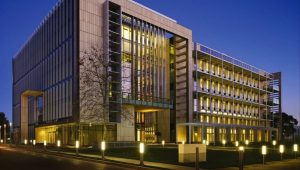News
Ikirun-born Businessman Sets Up Private University In Osun

The Ikirun-born Canada based business mogul, Prince Tajudeen Adesegun Gboleru has set up a new private university in Ikirun, Ifelodun Local Government Area of the State to contribute to knowledge, economic and human capital development of the state.
Christened Gboleru University, the founder who is the Chief Executive Officer of SDA Gboleru and Company Limited said the university will place premium on teaching students to acquire practical experience that is required in workplace environment. “It is time universities start teaching students in ways that more resemble the actual workplace,” he said.
He said the university will serve three particular functions which include preparing students for decent and qualitative employment, to achieve personal growth, and to contribute to improvement in society.
He said over $100 million has been earmarked as initial investment on the project and that over 150 hectares of land has been acquired along Gboleru Estate, Eko Ende Road in Ikirun. He said other necessary regulatory approvals are being processed to ensure a smooth take off of the university.
He said arrangements are also in place for the new university to partner with All Saints University College of Medicine, Canada. “With its alumni located across the globe, practicing as doctors, or in the fields of healthcare, research and academics, All Saints University strive to foster an environment where students feel supported academically, socially and emotionally”, he said.
According to him, “the effort will complement the efforts of the state government to ensure availability of qualitative and affordable education to all the sons and daughters of Osun State. Gboleru University will be made affordable through offering of scholarship to deserving grassroot students.”
Prince Gboleru said the new university will be an institution of higher learning providing facilities for teaching and research, made up of an undergraduate division which confers bachelor’s degrees and a graduate division which comprises a graduate school and professional schools each of which may confer master’s degrees and doctorates.
He said the decision to establish this institution in Ikirun is because universities are key to the national innovation agenda, and share an obligation to be at the forefront of contemporary policies and society. “This is why we are focused on producing quality, accessible research through highly cited and esteemed researchers. We will grow our innovation ecosystem and pursue the uptake of disruptive technologies that deliver positive economic impacts,” he said.
According to him, “having garnered enough international experience and exposure to education, I believe that, implicitly or explicitly, for students and teachers alike university education is still viewed as mainly about the transmission of facts, and about assessments to ensure those facts have been learned. There are two major flaws with this model. The first is that in most workplaces, teamwork, collaboration and outputs that are important for the employer are what matters, not the results of a test.”
“When we teach students to pass relatively arbitrary individual assessments, we may be testing their intelligence and their stamina, but we are not setting them up for success in real life. The second flaw is that facts, learned this way, don’t stay in people’s brains long enough to be mastered and applied. The only way for us to retain, internalise and learn to use expert knowledge is to apply it, try different ways of utilising it, make mistakes, and then try again via a different route. In short, to learn just as we do in real life.”
Prince Gboleru said It is time universities start teaching students in ways that more resemble the actual workplace. This, he said, does not mean university studies need to be vocational. “On the contrary, the importance of understanding the value of the latest research and of evidence-based thinking; of questioning accepted approaches; and of gathering data before making up one’s mind, can never be overstated.”
“These are, incidentally, all prerequisites for the graduate workplace. We can’t leave it solely to employers to teach our recent graduates what the real workplace is like. We have a duty to prepare our students better and to let them practice on real life problems, in a safe space.”
He said active learning which will be the benchmark of Gboleru University will deliver better learning outcomes for students and, equally importantly, resembles real working life.
“So, our students will have more than a vague idea of their journey ahead. They also deserve to understand early on what learning is about and that, because it never stops, they can apply their skills in many different types of jobs after graduation,” he said.
Prince Gboleru further revealed that dedicated, resourceful and goal-driven professional educator with a solid commitment to the social and academic growth and development of every child will be engaged to get the job done.
He said the institution will only be interested in accommodating versatile individuals with the talent to develop inspiring hands-on lessons that will capture a child’s imagination and breed success. He said strict guidelines will be adopted to attract highly motivated, enthusiastic and dedicated educator who wants all children to be successful learners.
Committed to creating a classroom atmosphere that is stimulating and encouraging to student, Prince Gboleru said aptitude to remain flexible, ensuring that every child’s learning styles and abilities are addressed will be promoted at the university.
“Superior interpersonal and communication skills to foster meaningful relationships with students, staff and parents; demonstrated ability to consistently individualize instruction, based on student’s needs and interests; exceptional ability to establish cooperative, professional relationships with parents, staff and administration as well as professional educator with diverse experience and strong track record fostering child-centered curriculum and student creativity will be given a pride of place in the new university.
A self-starter with high energy enabling maximum and efficient work under pressure as well as accustomed to working in a multicultural environment that emphasizes inclusion will be encouraged.
Gboleru said the institution already has its eye on a team of experts with experience in developing curriculum as well as conducting teaching, training and parenting programme; introduce concepts into curriculum related to life and social skills. They have acquired special skills that will make them thoroughly enjoy working with children and encourage creative expression.
“They are enthusiastic, committed educator with innate ability to understand and motivate children,” he said. “They strive to build student self-esteem and encourage understanding of cultural diversity, gender differences and physical limitations. They create a cooperative community in the classroom; model for students the importance of mutual respect and cooperation among all community members. They are skilled in adapting to students’ diverse learning styles.
“Our courses and research capacity will be geared towards excellence at a global level. We are focused on creating a lasting impact that contributes to the needs of communities and empowers people to achieve their aspirations.
Our ambition for our graduates is that they will be ethical, agile thinkers who are competitive in a global economy. Their experiences at Gboleru University will shape their sense of self as well as their future career.
Some of the courses that will be offered at the initial stage of the institution include Agriculture, Agricultural Economics, Agricultural Extension, Agronomy, Animal Science, Crop Science, Food Science and Technology, Fisheries, Civil Engineering, Chemical Engineering, Computer Engineering, Electrical Engineering, Electronic Engineering, Marine Engineering, Mechanical Engineering, Metallurgical and Materials Engineering, Petroleum and Gas Engineering, Systems Engineering, Structural Engineering, Production and Industrial Engineering,
Others are Environmental Sciences, Anatomy, Anesthesia, Chemical Pathology, Community Medicine, Dermatology, Hematology and Immunology, Medical Biochemistry, Medical Microbiology, Medicine, Morbid Anatomy, Obstetrics and Gynecology, Ophthalmology, Otolaryngology, Pediatrics, Pharmacology and Therapeutics, Physiology, Radiation Medicine Surgery, Psychological Medicine, Child Dental Health, Clinical Pharmacy and Pharmacy Management, Pharmaceutical Chemistry and Industrial Pharmacy, Pharmaceutical Technology and Industrial Pharmacy, Pharmaceutics, Pharmacognosy among others.
-

 News2 days ago
News2 days agoMay Day: Babayemi Praises Tinubu Over Salary Increments
-

 News4 days ago
News4 days agoBreaking: Edo Governor, Obaseki Increases Minimum Wage To N70,000
-

 Opinion2 days ago
Opinion2 days ago…Of Osun Poly, WAEC, NECO, JAMB And Half-Baked Matriculated Products By Tope Abiola
-

 News1 day ago
News1 day agoFracas At Osun Workers Day Rally As Two Factions Of NULGE Clash




